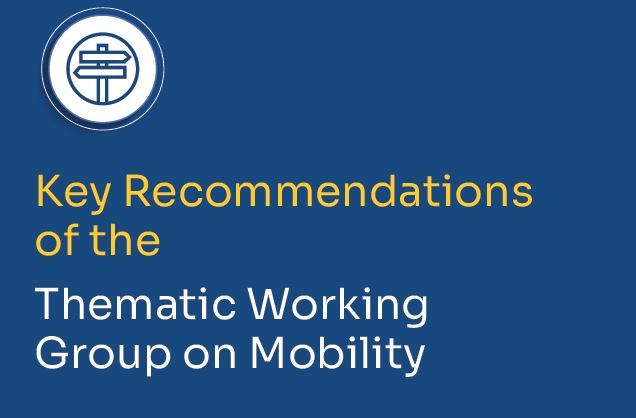Unlocking Regional Growth through Mobility and Collaboration

Mobility has increased over the last decade in the Western Balkans. At the same time, outbound migrations from the Western Balkans have accelerated too, seriously affecting the region's economic potential.
In light of these changes, a thematic working group, led by SCiDEV, has put forward four key recommendations to enhance mobility in the Western Balkans.
These recommendations aim to foster regional cooperation, instill shared values among the Western Balkan economies (WB) and the EU, and promote inclusive regional mobility.
They underscore the importance of collaboration and ongoing support for mobility-driven research and innovation (R&I) to empower the WB to tackle shared challenges like climate change and digital transformation while preventing brain drain and nurturing a new generation of innovators.
A Collaborative Journey: The Road to Recommendations
Multiple consultation meetings, involving a diverse group of 43 stakeholders from universities, research centers, intergovernmental organizations, civil society groups, and think tanks, were held between June and September 2023.
The discussions focused on promoting regional mobility, engaging the diaspora, aligning Western Balkans' higher education and scientific research systems with European frameworks, and boosting regional and EU research collaboration.
These findings and recommendations were further validated during advocacy visits in Berlin and Brussels, along with networking events in Sarajevo and Munich in September 2023.
The key findings eventually found their way to the Berlin Process Joint Science Conference Statement. At the very end of the process, SCiDEV hosted a high-level panel discussion during the 2023 Civil Society and Think Tank Forum of the Berlin Process in Tirana on 14-15 October 2023.
Key Recommendations
The process culminated in proposing the following four key recommendations.
Fostering Collaborative Resilience
The experts recommend supporting and incentivizing intensified collaboration, mobility, knowledge transfer, and access to research and innovation infrastructure.
This initiative involves a paradigm shift where the Western Balkans (WB6) don't just play catch-up with their European counterparts.
Instead, they engage in collaborative efforts to address shared challenges such as building resilient societies, combatting climate change, and navigating digital transformation.
Unlocking Comprehensive Mobility Framework
The experts emphasize the importance of a commitment to facilitating and financing the creation of an all-inclusive regional mobility framework.
This framework should cover students, researchers, university staff, R&I experts, and professionals within the Western Balkans.
Customized to cater to the region's specific needs and priorities, this framework would pave the way for strengthened regional collaboration, knowledge transfer, and access to R&I infrastructure.
Investing in a Dedicated Research Fund
It is recommended that the EU reconsider supporting and co-financing the establishment of a dedicated Western Balkans Research Fund.
This fund would work through specific granting and support schemes focusing on mobility, knowledge transfer, access to infrastructure, and engaging the diaspora in the R&I ecosystem within the WB6 and with the EU.
This initiative seeks to address the current limitations of the Widening Participation and Horizon Europe programs while boosting the scientific, research, and innovation capabilities of the region.
Creating Regional Digital Hubs for Collaboration
The experts recommend supporting the creation and consolidation of regional digital information hubs throughout the Western Balkans region.
These hubs would enhance digital collaboration and research synergy not only within the WB6 and the EU but also with the private sector, academia, and policymakers.
To further this initiative, there should be a focus on strengthening and incentivizing the Horizon Europe National Contact Points within the Western Balkans.
Realizing the Potential of Mobility and Innovation
These recommendations present a collective approach to address the Western Balkans' evolving mobility landscape and harness the potential for regional growth through research and innovation.
The region faces pressing challenges, and mobility can play a pivotal role in regional development and integration into the EU.
Research and innovation, along with knowledge transfer, hold the key to sustainable growth and economic convergence with the EU.
However, realizing this potential depends on addressing the pressing R&I challenges and investing systematically and efficiently in mobility-driven innovation.
The WB have made progress aligning their R&I systems with EU standards in recent years. Yet, ongoing support and investments in mobility-driven R&I, both within the region and with the EU, are essential to bridge the gap.
